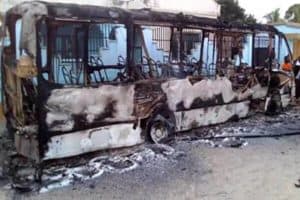International community is ignoring jihadist attacks in northern Mozambique
The world does not see, or does not wish to see, jihadist terrorist inroads into Mozambique. That is the view of Paulo Rangel, a member of the European Parliament and vice president of the European Popular Party. In northeast Mozambique, violent attacks by armed groups have already caused hundreds of deaths and left over 200,000 people homeless.

Rangel told Aid to the Church in Need (ACN): “It is already becoming late to act, yet it is better to do so now rather than later. Since 2017 we have been confronted by this re-emerging and increasing situation, yet the international community is absolutely nowhere to be seen.” Rangel described the situation in the province of Cabo Delgado as “a powder keg” and appealed for help for the people affected by the violence perpetrated by armed groups which claim to belong to ISIS.
“What is happening at present in Cabo Delgado is that people are fleeing to the towns, where they believe the attacks will be less likely, because they have seen what is happening in the villages. People are fleeing for their own protection, even before being attacked,” the politician said.
Rangel stressed that this is not a religious war. Both Christians and Muslims have been victims of these extremist groups. He praised the position of Bishop Luiz Fernando Lisboa of Pemba, Mozambique: “The Bishop of Pemba has been absolutely clear in all his prophetic interventions and in all the appeals he has made. He has made clear that the Muslims are also suffering greatly and that the Muslim leaders themselves are extremely concerned.”
The support of the international community is urgently needed. Rangel said: “We are talking about one of the poorest regions in the world. The people were already living in extreme poverty, facing grave difficulties. The problem is these people are facing the threat of death, of losing their homes, of becoming uprooted.”
He continued: “We know that there are young girls who have been abducted and enslaved, forced into sexual slavery by some of these guerillas, these insurgents, these terrorists. The recruitment of boys and adolescents, some of them very young, ages 14, 15, 16, is also happening. It is obvious that these young boys are under coercion. If they refuse to join the group, they could be killed.”
—Paulo Aido

